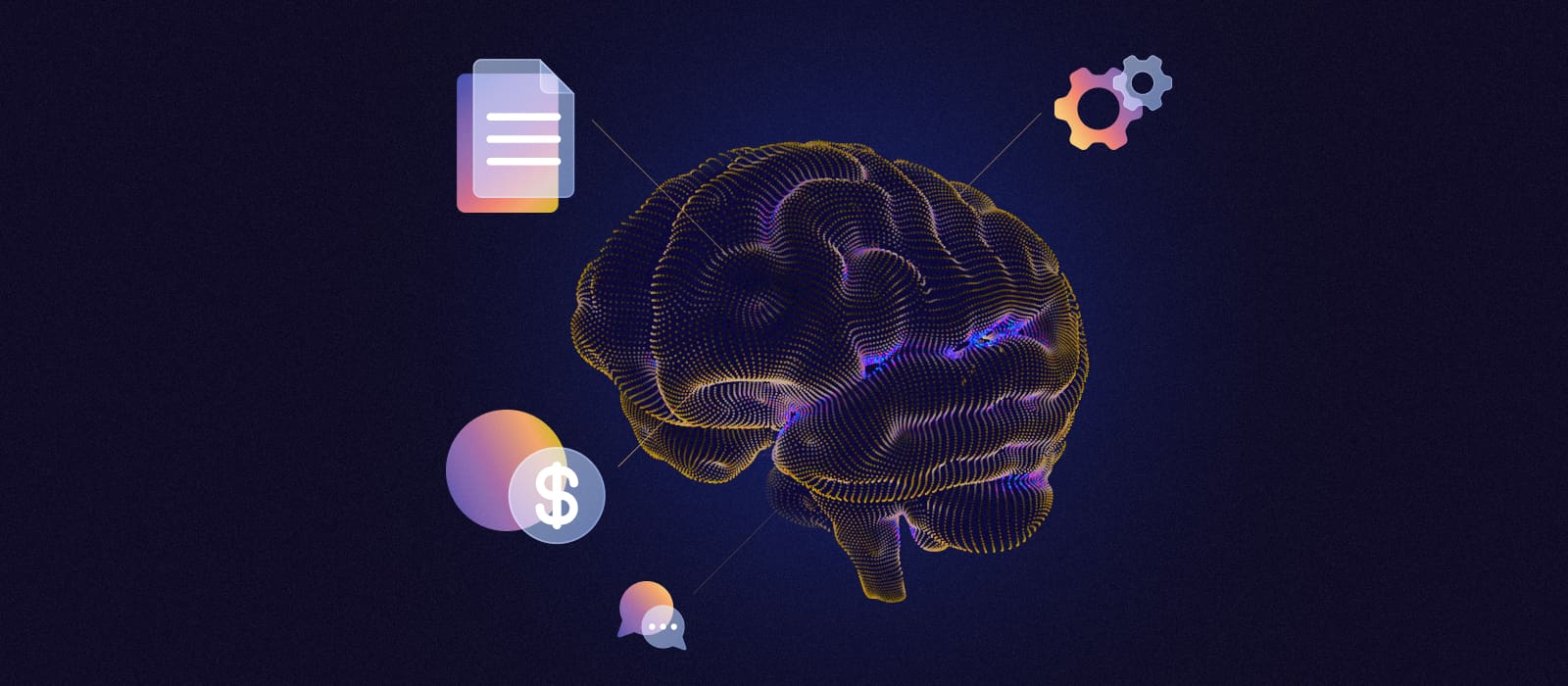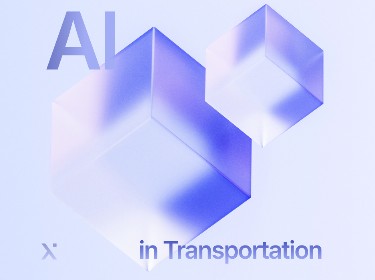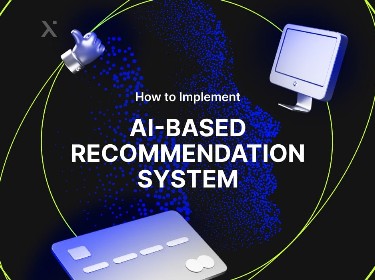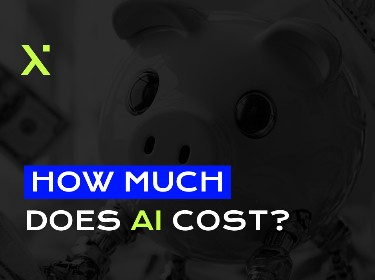Machine learning as a service democratizes access to ML capabilities, empowering organizations to benefit from the technology without requiring in-house expertise or major infrastructure investments.
Machine learning technology (MLaaS) is a well of business-boosting opportunities. It benefits both inner processes, such as document flow and data management, and external operations, including customer communication and marketing activities.
As an increasing number of organizations grasp the technology’s enormous potential, the demand for MLaaS is on the rise, with projections suggesting that its market may reach an estimated value of $304.82 billion by 2032.
Read on to find out why businesses embrace machine learning as a service, its most common use cases, and the leading MLaaS solutions.
What is machine learning as a service and how does it work?
Machine learning as a service is a cloud computing offering that provides on-demand machine learning services. With MLaas, companies can leverage ML learning tools, algorithms, and infrastructure without the need to build and maintain their own solutions from scratch.
ML as a service platforms empower businesses to easily integrate machine learning, drive innovation, and enhance data-driven decision-making by utilizing ML to analyze data, gain insights, predict outcomes, and automate tasks. By partnering with a machine learning development company, businesses can further customize these solutions, ensuring they are tailored to their unique needs and delivering maximum value.
Overview of common machine learning as a service components
![]()
Machine learning as a service solutions may offer only a single service or a very specialized set of functionalities. For instance, it might focus solely on image recognition or deliver perfectly tuned pre-trained ML models.
However, MLaaS platforms usually encompass several components, the most common ones being pre-built models, model training functionality, monitoring and management solutions, data storage and handling tools, APIs, and AutoML.
Let’s take a closer look at each of these elements.
Pre-built models
MLaaS platforms often offer ready-made ML models able to perform common tasks, such as image recognition or natural language processing (NLP). These models are ready for use, so developers can easily add them to their applications without needing to do extensive development or training. This streamlines the process of implementing machine learning solutions, making it accessible to a broader range of users.
Model training functionality
ML as a service solutions provide the necessary infrastructure and tools for training machine learning models: users can upload their data, select algorithms, and fine-tune model parameters. The actual training process is often parallelized and distributed across multiple servers to accelerate model development.
Monitoring and management solutions
MLaaS providers usually extend their services with tools for monitoring the performance of deployed ML models. This includes tracking metrics, managing model versions, and making adjustments as needed.
Data storage and handling tools
Machine learning as a service vendors typically offer solutions for data storage and management. They may also include preprocessing and cleaning tools for data preparation before model training.
What is data science and why is it of utmost importance for your business processes? Find out in our article
Application programming interfaces
Application Programming Interfaces (APIs) are a common offering of MLaaS solutions, allowing developers to integrate ML capabilities into their applications, websites, or services, without having to acquire or apply extensive knowledge of underlying algorithms.
Automated machine learning
Automated machine learning (AutoML) tools within the MLaaS help design and optimize machine learning workflows, automatically selecting the best model and preprocessing steps for a given task.
What are the business benefits of machine learning as a service?
![]()
ML as a service provides significant advantages to organizations across diverse industries. These include:
- High scalability — MLaaS users can adjust their machine learning resources based on their specific needs, which is especially valuable when dealing with large-scale projects or unexpected spikes in demand.
- Cost efficiency — machine learning as a service operates on a pay-as-you-go model, with customers charged based on their usage. Oftentimes, it is more budget-friendly than developing and maintaining an in-house ML infrastructure, especially for smaller organizations or startups.
- Robust security and regulatory compliance — reputable MLaaS providers enforce rigorous security protocols and strictly adhere to industry standards and regulations to safeguard sensitive user data and maintain compliance with regulatory requirements.
- Competitive advantage — by streamlining the process of implementing machine learning solutions, ML as a service empowers businesses to respond swiftly to changing market conditions, deliver innovative products and services, and establish a stronger presence in their markets.
- Minimized maintenance — with MLaaS, the responsibility for maintaining and updating machine learning infrastructure is on the service provider, freeing up internal IT teams to focus on core business activities.
What are the possible disadvantages of leveraging MLaaS?
Despite the many great benefits ML as a service offers, there are some drawbacks businesses should consider:
- Data privacy concerns — even though machine learning as a service vendors keep to high security standards, there’s always a risk factor when data is in transit. Therefore, MLaaS might not be the best choice for organizations handling highly sensitive data.
- Slow data transfer — transferring large datasets to and from the MLaaS provider’s servers can be time-consuming, especially when dealing with real-time applications. This can cause latency and affect user experience.
- Third-party dependency — relying on an external ML as a service vendor means your solution’s availability is dependent on their uptime and performance quality. Downtime or service disruptions can affect your applications.
- Limited offline capabilities — machine learning as a service often relies on cloud-based solutions, which may not be suitable for applications that require offline or edge computing capabilities.
Get familiar with the top data analytics trends businesses should know about
What are the business applications of machine learning as a service?
![]()
Machine learning as a service offers a wide range of applications for businesses across various sectors, including chatbots and virtual assistants, image and video analysis, manufacturing and supply chain management, and finance and document management.
Let’s take a closer look at these use cases.
Chatbots and virtual assistants
MLaaS is boosting the development and adoption of AI chatbots and virtual assistants, allowing companies to provide personalized, efficient, and round-the-clock customer support and services, improving customer satisfaction and operational efficiency.
Machine learning as a service platforms can provide advanced NLP capabilities, enabling chatbots and virtual assistants to understand and respond to user queries in a more human-like and context-aware manner. In addition, such digital assistants can analyze user data and behavior to provide highly personalized recommendations and services.
Besides, MLaaS-driven chatbots excel at automating repetitive and mundane tasks, allowing human employees to focus on more complex and value-added activities. This boosts business operational efficiency and reduces labor costs.
Enterprises can integrate these chatbots and virtual assistants with their existing software, databases, and customer relationship management (CRM) systems, streamlining data access and automation.
Image and video analysis
MLaaS models able to execute image and video analysis enable businesses to automate processes, enhance decision-making, and extract valuable insights from visual data.
For example, machine learning as a service solutions can automatically filter and moderate user-generated content on platforms such as social media, online marketplaces, and forums. Moreover, they can identify and block inappropriate or harmful images and videos, ensuring a safe and compliant online environment and aiding in brand reputation maintenance.
Since MLaaS algorithms are capable of analyzing facial expressions in images and videos and determining emotions, businesses leverage them to enhance sentiment analysis and personalized marketing.
Manufacturing and supply chain management
As manufacturing and supply chains become increasingly complex and highly competitive, MLaaS is a go-to option for companies looking for innovative ways to stay ahead of the curve.
ML as a service models are capable of performing predictive analytics, which allows for timely detection, mitigation, and prevention of maintenance needs, product shortage, or excess inventory. This way, businesses may optimize their budgets and inventory levels, reduce unplanned downtime, and improve equipment reliability.
Organizations may also leverage machine learning as a service solutions to upgrade their energy usage, consequently reducing utility bills and environmental impact. They can predict energy consumption patterns based on historical data and external factors like weather conditions and production schedules.
In the meantime, MLaaS-powered supply chain solutions provide real-time visibility into the entire supply chain, enabling companies to track shipments, monitor inventory stock, and identify potential bottlenecks. They can also assess supply chain risks, such as disruptions due to weather factors or geopolitical events, allowing businesses to implement efficient risk management strategies.
Learn more about AI in the energy industry in our article
Finance management
Machine learning as a service applications can help organizations manage their finances more efficiently as well as uncover investment opportunities.
To provide businesses with financial insights, MLaaS models analyze vast datasets comprising historical company data and current market trends. Plus, they can optimize tax strategies and analyze expenses, making it easier for organizations to track and control their spending.
ML as a service algorithms are also able to enhance fraud detection systems by analyzing transaction data and identifying unusual patterns or anomalies.
Document management
By leveraging MLaaS in business documentation workflows, organizations can save time, reduce errors, enhance compliance, and ultimately improve their operational efficiency.
ML as a service models can automatically classify documents into predefined categories, such as invoices, contracts, receipts, or correspondence. This classification can help boost document delivery to the appropriate departments and free up human personnel.
Furthermore, MLaaS models can extract structured data from unstructured documents like PDFs, images, or handwritten forms, making it possible to unlock valuable information that would otherwise remain hidden.
To achieve better document organization and easier retrieval, machine learning as a service solutions can automatically generate metadata for documents, such as titles, dates, authors, or keywords and manage document versions.
On top of that, MLaaS models can continuously monitor documents for compliance with industry standards or regulations, flagging non-compliant documents for review.
Wish to explore more ML business applications? Then you should definitely check out our article
Top 3 machine learning as a service solutions
There are plenty of reliable machine learning-as-a-service providers catering to diverse industry needs, from enhancing predictive analytics and data analytics services to advancing natural language processing and computer vision.
Here are the top three recommendations from our ML experts.
Microsoft Azure Machine Learning
Microsoft Azure Machine Learning is an all-encompassing cloud-based platform designed to streamline the development, deployment, and management of machine learning models. It provides a range of AI development services and tools that empower data scientists, developers, and businesses to harness the power of AI and make data-driven decisions.
Azure Machine Learning offers data preparation and exploration instruments, enabling users to clean, transform, and visualize their data to make it suitable for machine learning tasks.
Users can also build and train their own ML models using various algorithms and frameworks such as TensorFlow, PyTorch, and scikit-learn. Besides, the solution provides AutoML functionality that simplifies model creation by automating feature engineering, algorithm selection, and hyperparameter tuning.
Azure Machine Learning allows users to monitor their model performance, track experiments, and manage model versions.
Uncover the transformative power of data with our data visualization services
IBM Watson Machine Learning
IBM Watson Machine Learning is an MLaaS platform that provides a full range of tools and services for ML models building and deployment.
The solution empowers users to create machine learning models using popular libraries and frameworks, such as TensorFlow and XGBoost. Plus, IBM Watson ML makes it possible to deploy machine learning models as RESTful APIs, making it easy to integrate them into applications and workflows. It also supports model deployment in Docker containers for portability.
To ensure the models are unbiased and accurate, the platform provides data preparation and cleansing tools, allowing users to customize the datasets for specific tasks.
IBM Watson Machine Learning adheres to strict security and compliance standards, making it suitable for use in highly regulated industries. Some of the safety measures employed include encryption, access control, and audit trails.
Google Cloud Platform
Google offers a variety of machine learning tools and services within its Google Cloud Platform (GCP), including but not limited to:
- Google Cloud AI Platform — an MLaaS solution that allows for model development, training, and deployment.
- Google Cloud AI Hub — a collaborative space where data scientists and ML engineers can work together, share knowledge, and streamline the machine learning development process.
- Google Cloud AutoML — a set of instruments that automate different aspects of the machine learning process.
- Google Cloud Vision AI — a service for image analysis that can detect and identify objects, recognize text, and classify images.
- Google Cloud Natural Language AI — an instrument for understanding and analyzing text data, including sentiment analysis, entity recognition, and syntax analysis.
- Google Cloud Video AI — a solution capable of analyzing and annotating video content for object tracking, scene segmentation, and event recognition.
- Google Cloud Speech-to-Text AI — a tool that can convert spoken language into written text, facilitating transcription and voice command applications.
- Google Cloud Text-to-Speech AI — a solution that transforms text into lifelike speech, making it valuable for voice assistant and accessibility applications.
Find out some useful insights about ML application development with our infographics
Conclusion
Machine learning as a service opens up exciting possibilities for businesses of various sizes and specialties, giving them access to ML capabilities that were once reserved for larger enterprises.
The business benefits of MLaaS are abundant. It enhances decision-making by providing actionable insights from data, improves operational efficiency by automating repetitive tasks, and fosters innovation by enabling businesses to develop predictive models and personalized services.
Not sure whether you should opt for a custom ML solution or turn to MLaaS?
Our highly proficient machine learning consultants will help you make the right decision by evaluating your specific needs and requirements. Whatever option you choose, we will be there every step of the way to ensure seamless integration, training, and ongoing support to maximize the value you derive from machine learning in your business operations.
Contact us and boost your business growth using the power of machine learning!




